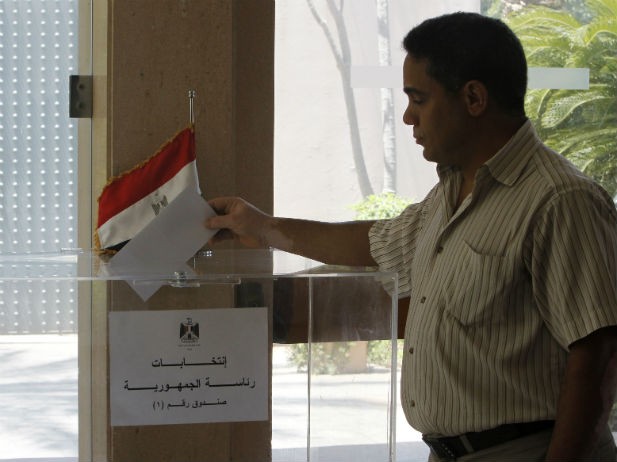(VOVworld) - On May 23rd and 24th, 50 million Egyptians will cast ballots to elect a new President 15 months after former President Hosni Mubarak was ousted during the Arab Spring uprising. Opinion polls suggest that none of the 12 candidates is likely to secure a clear victory in the first round.
Analysts agree this election is important for the future of Egypt. Besides electing a new President the election will conclude the transition period, ending the power of the currently ruling Military Council and taking the first steps toward democracy. Since 1952, Egypt has had 4 Presidents elected by referendum. This time, people will choose their leader from a slate of candidates with competing promises to stimulate the economy by investing in energy industries, agriculture, and projects along the Suez canal.
 |
| Egyptians vote in landmark presidential elections |
Pre-election polls indicated that 37% of Egyptian voters had not decided who they would vote for. Analysts agree that no candidate is likely to secure more than 50% of the votes in this round. If not, the two candidates with the most votes will face off in a second round, scheduled for June 16 and 17.
The likeliest candidates for the second round include the former Arab League Secretary General Amr Moussa, former Prime Minister Ahmed Shafiq, former member of the Muslim Brotherhood Organization Abdel Moneim Fotouh, and president of the Freedom and Justice Party (FJP) Mohamed Mursi. This list suggests a showdown between the Islamists and the secularists, some of whom served in Mubarak’s regime. Diaa Rashwan, Director of the Al-Ahram Centre for Political and Strategic Studies, says “whoever wins this week's vote, the power struggle among Egypt's multiple players is only just beginning”.
15 months after Mubarak’s ouster, protests continue and the economy is worsening. Rallies, violence, and instability have driven investors away. The country’s foreign direct investment has fallen from 1.6 billion USD before the uprising to 440 million USD and Egypt’s trade deficit has reached 2.36 million USD. In 2011, tourism revenues fell 30%. The number of crimes has increased significantly, over and above the factional disputes that have prevented Egypt from adopting a new Constitution for the Post-Mubarak period.
More than a year ago, millions of Egyptians took to the streets to overthrow Mubarak in the hope of opening up a new period of democracy, peace and development. This year, they are struggling to agree on a new leader in Egypt’s first ever democratic presidential election.